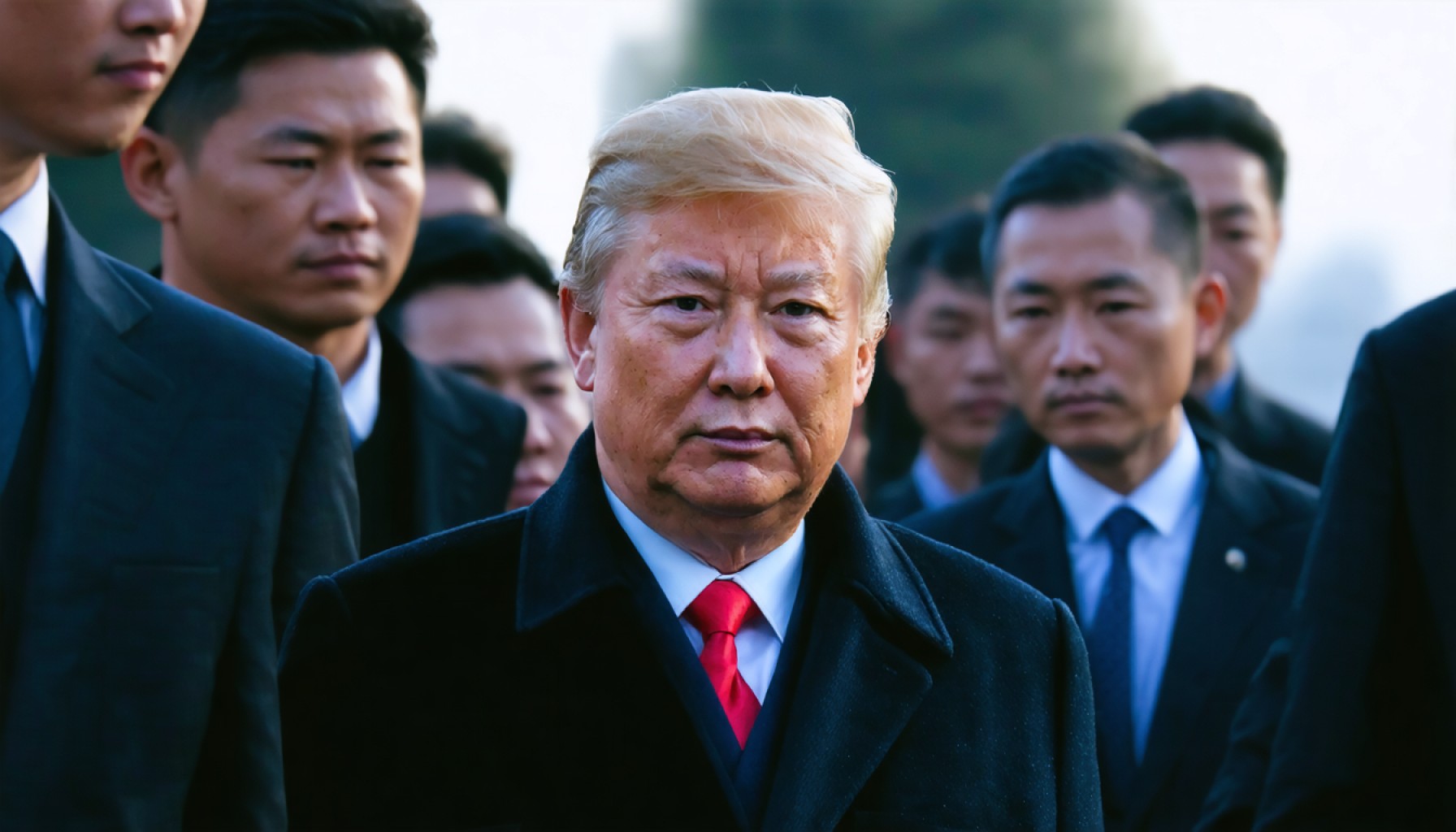- The Central Commission for Discipline Inspection (CCDI) has launched an investigation into Jiang Chaoliang, highlighting China’s commitment to accountability.
- Jiang Chaoliang, Vice Chairman of the Agriculture and Rural Affairs Committee, faces scrutiny for his conduct in a significant corruption probe.
- His prestigious political career includes roles as Governor of Jilin Province and Party Secretary of Hubei Province.
- This investigation underscores that no official in China is exempt from stringent oversight, regardless of their position.
- The situation spotlights China’s ongoing efforts to combat corruption and uphold ethical standards within its government.
- The global community observes closely, as the implications of this inquiry might influence power structures in China’s political hierarchy.
The political corridors of China trembled with anticipation as news emerged of a major investigation targeting a senior government official. A ripple of uncertainty swept through the country as the Central Commission for Discipline Inspection (CCDI) announced the probe into the conduct of Jiang Chaoliang, a prominent player in China’s political sphere.
As the Vice Chairman of the Agriculture and Rural Affairs Committee and a pivotal figure on the National People’s Congress Standing Committee, Jiang’s career has been both influential and groundbreaking. Born in August 1957, his political journey saw him ascend to significant leadership positions, including the Governor of Jilin Province and the Party Secretary of Hubei Province. However, his illustrious path now faces a seismic challenge as he becomes the focus of a severe disciplinary and supervisory review.
This investigation highlights the Chinese government’s unyielding stance on governance and accountability. It serves as a stark reminder that no official, regardless of rank, is immune to scrutiny. Jiang’s case is unfolding under the watchful eyes of the CCDI, the nation’s premier watchdog agency, renowned for its rigorous and uncompromising approach to upholding ethical standards.
The unfolding narrative around Jiang Chaoliang exemplifies the Chinese government’s ongoing efforts to maintain integrity within its ranks. With this high-profile scandal under investigation, the resolve to root out corruption remains a key tenet of leadership in the country. The global community watches keenly, as outcomes from this probe could potentially reshape power dynamics within China’s political elite. In this whirlwind of intrigue and accountability, one truth stands firm: integrity echoes beyond borders, reinforcing the very foundation of governance.
Inside China’s Political Earthquake: Uncovering the Real Impact of Jiang Chaoliang’s Investigation
How-To Steps & Life Hacks: Understanding the Investigation Process in China
1. The CCDI’s Role: The Central Commission for Discipline Inspection (CCDI) is China’s primary anti-corruption agency, often involved in probing governmental misconduct. According to CCDI’s official website, they start investigations based on tips, reports, or proactive audits.
2. Investigation Steps:
– Initiation: Once a credible complaint is received, initial inquiries are made to determine if there’s sufficient cause.
– Formal Investigation: If warranted, a formal investigation is launched, which can include data collection, interviews, and asset scrutiny.
– Findings & Recommendations: After concluding the investigation, findings are compiled and recommendations are made, potentially leading to criminal prosecution or disciplinary actions.
Real-World Use Cases: Impact of Anti-Corruption on Governance
The intensive scrutiny of figures like Jiang Chaoliang is emblematic of President Xi Jinping’s (known for his anti-corruption drive labeled “tigers and flies”) commitment to eliminating corruption at all levels. According to the academic journal “Studies in Comparative International Development”, large-scale anti-corruption campaigns can lead to:
– Improved public trust in the government.
– Enhanced administrative efficiency and reduced bureaucratic bloating.
– Promotion of merit-based company cultures, especially in state-owned enterprises.
Market Forecasts & Industry Trends
– Political Stability Effects: Increased governmental integrity often leads to a more predictable business environment, enticing foreign investments.
– Economic Shifts: As per a report by the OECD, higher government transparency leads to better economic performance, potentially affecting international trade relations with China.
Reviews & Comparisons: Similar Cases in History
– Much like Jiang Chaoliang’s case, Zhou Yongkang, another senior official, was investigated and sentenced for corruption, highlighting the reach and seriousness of Chinese political purges.
– Comparing to international counterparts, Transparency International ranks China’s approach to rooting out government corruption as both vital and politically complex in execution.
Controversies & Limitations
Critics argue that the anti-corruption drive can be selectively enforced, potentially being used as a political weapon against adversaries rather than purely for ethical governance. Concerns also arise about the lack of transparency in the CCDI’s investigative proceedings, leading to calls for reform from international human rights organizations.
Insights & Predictions: Future of Chinese Politics
Experts like Viktor Shih, a political economist at the University of California, predict that:
– The crackdown will continue, leading to more stability but potential short-term tensions within the party.
– External communication strategies may be developed to handle increasing global scrutiny over corruption practices.
Actionable Recommendations
For businesses and individuals dealing with Chinese counterparts, maintaining compliance with ethical standards is vital. Companies should:
– Regularly update their knowledge of China’s regulatory environment.
– Engage in local partnerships that are transparent and adhere to international norms.
– Implement stringent internal audits to prevent compliance issues.
For more information on global anti-corruption efforts and their impact on business practices, visit Transparency International.
By understanding the intricate dynamics of Chinese political accountability, readers can gain a better grasp of the broader implications of corruption investigations and prepare adequately for any business or diplomatic engagements with China.
